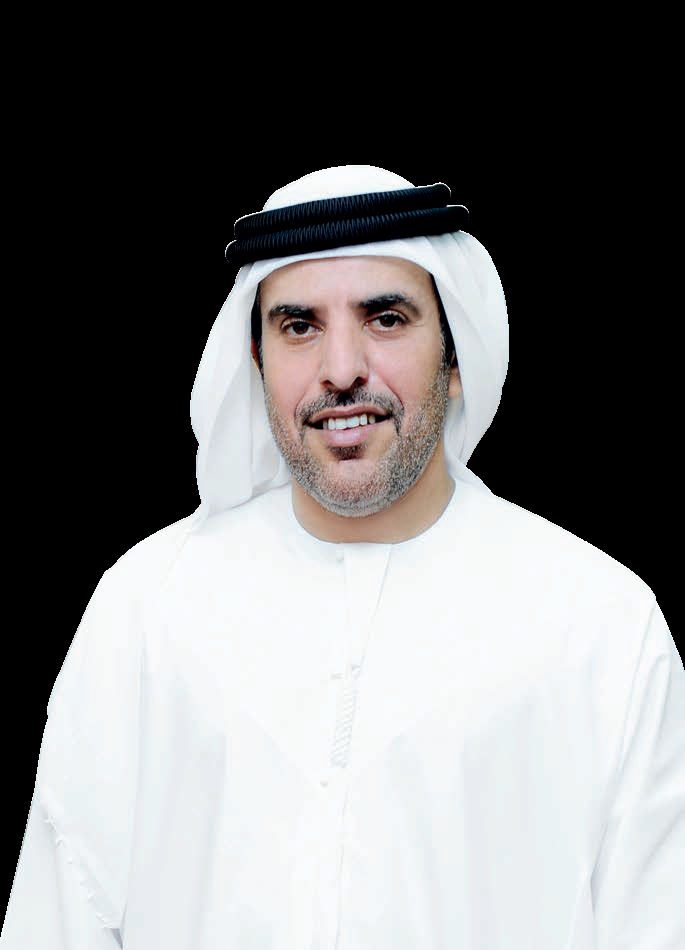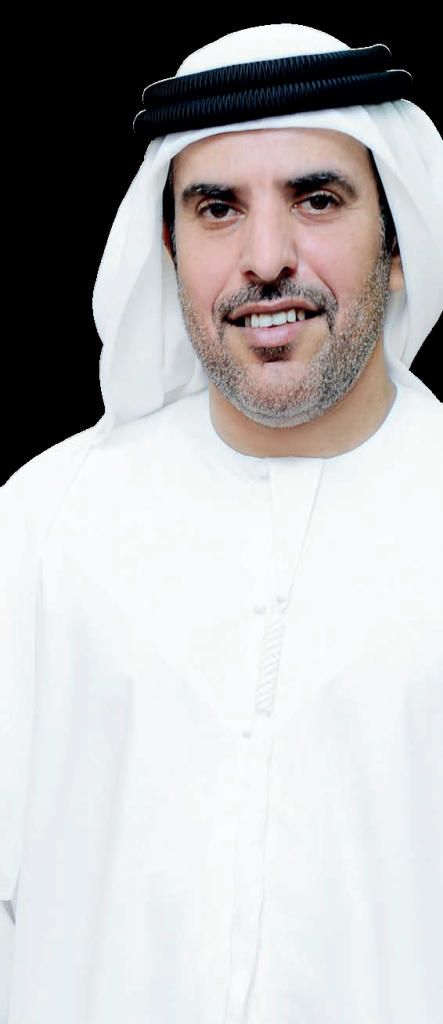Ahmed Khalaf Ahmed Al Otaiba

ISFIRE has global distribution and our readers come from all over the world; please tell us about your personal approach to Islamic banking and finance. As Chairman of Siraj Finance, how have you contributed to the development of Islamic banking and finance in the UAE?

While we are cognizant on the basic principles of the origin of Islamic banking, the idea of a conceptual banking practice is necessarily to facilitate a purposeful funding on acquiring an end product that could be tangible or intangible while fulfilling the demand of the society in terms of meeting the end consumer requirements. In this day and age, such funding is currently available in various forms, however the nomenclature of rationalizing the qualification criteria could be very indecisive while calculating the liability positioning of the debt burden ratio. The simplicity of reducing the debt burden ratio by capital reserve allocation would create a high dependability on the market risk appetite and thus questioning the integrity of the customer portfolio. Such excerpts and notations would symbolically highlight an unethical business proposition, wherein the origin of such facilities dismay the country’s economic stance. We at Siraj Finance, constantly work toward meeting the consumer demands in an ethical approach while foreseeing the ever- demanding market appetite on a forward learning curve with due gratitude of the UAE leadership and its business acumen. To-date, our service offerings ensures a dynamic approach towards scaling the requirements on qualifying or rather proof- reading a genuine credit proposal without creating undue resistance on pre-qualified requests and facilities. This has been evidently possible through the dedication and commitment of securing a clean chit with the due diligence parameters triggered by the Central Bank of UAE guidance and roadmap, our Shari’ a team (Dar Al Sharia) and the Etihad Credit Bureau amongst others. In a nutshell, we tend to deal with requests that are ethical in nature and are driven to have an impact in the growth of the economy and the social wellbeing thereby avoiding undue surprises and consequences.

You have had an illustrious career in Islamic finance, and now you’re running arguably one of the best Islamic finance companies in the UAE. How does your current role as Chairman of an Islamic finance company differ from your previous roles?

First and the foremost, it has been an immense satisfaction and fulfillment in being able to service and practice the Islamic principles under Sharia`a guidance. Furthermore, an opportunity to leverage this experience with the social community has always been a feather in the cap while comparing my previous roles in managing other business propositions.

The UAE is big on an Islamic economic agenda. What have Islamic banks and finance companies in the country done to achieve Islamic economic objectives the UAE has set for herself?

As a Finance Company, we were able to segment our approach towards servicing multi-level customer engagements and businesses that included the Small and Medium Enterprise (SME) companies and their associated employees irrelevant of them being a white collar or a blue collar. This has led to better market capitalization and penetration while furthering on our financial inclusion program. While it has been noticeably alarming to see the trending, patterns experienced globally around the volatility of unsecured and secured finances and facilities, we believe that Islamic finance would bridge the gap in creating an essential platform that eases the pressure on the lending community and enables a rewarding career prospect for healthy financing facility. Thus, the Islamic banking community is showcasing their true relevance in bringing the UAE social community closer to a niche proposition that is economically stable and certain.
As a Finance Company, we were able to segment our approach towards servicing multi-level customer engagements and businesses that included the Small and Medium Enterprise (SME) companies and their associated employees irrelevant of them being a white collar or a blue collar. This has led to better market capitalization and penetration while furthering on our financial inclusion program. While it has been noticeably alarming to see the trending, patterns experienced globally around the volatility of unsecured and secured finances and facilities, we believe that Islamic finance would bridge the gap in creating an essential platform that eases the pressure on the lending community and enables a rewarding career prospect for healthy financing facility. Thus, the Islamic banking community is showcasing their true relevance in bringing the UAE social community closer to a niche proposition that is economically stable and certain.


Islamic banking and finance is significant in terms of size and proportion in the UAE financial sector. Some analysts believe that further growth in the sector will pose a real challenge and that it will be extremely difficult for Islamic banks and financial institutions to cannibalize conventional banking and financial business beyond the current market share. Does it mean that Islamic banking and finance will never have a market share of 50% or more in the UAE?

Although it has not been within our purview to measure the success of the Islamic banking penetration, nevertheless the principle and methodology of Islamic banking has created a boosting inspiration to all faiths and has never been confined to the Muslims alone. With the practice of Sharia`añ ‘ concepts and ruling, a greater traction has been observed in the UAE market and we would conceptualize this development to get closer to the 50% breakthrough if not exceed..

The world is fast becoming orientated towards the use of social media. What role can social media play in creating awareness around Islamic banking and finance?

As it has been observed and factually represented that the experiences in the global economy within the banking community has already created enough friction on the impact of bad loans and extensions- streaming on social media to begin with the prime finances and other distortions. There has also been positive impact in terms of financial Inclusion and literacy programs has spearheaded the social media with the awareness coverage on the intricacies associated with the banking community. We are certain that the growing coverage of the credentials of Islamic banking would instill confidence in the end consumers to be decisive in materializing their financing requirements and thereon the experiences shared within the social community would enable in capturing remote markets amongst the existing areas of coverage. The social media would make a growing impact with appropriate visuals and writeups on the relevance of Islamic banking and further facilitate in the penetration towards securing untapped markets.

The UAE is one of the few examples of countries where governments are extremely supportive of Islamic banking and finance. In the presence of practices like tawarruq, how easy has it been for the UAE Islamic financial institutions to compete with their conventional peers?

While Islamic banking concepts and principles have shown increased traction with the UAE residents, the support by
UAE government has further instilled confidence within the overall banking customers. This development has led to an increased acceptance of the concepts of Islamic banking and tawarruq has been duly accepted and followed- through as a practice for materializing any Islamic banking facilities and services. Hence, the concept of tawarruq has been duly recognized and accepted over the conventional peers as a bare minimum requirement to pursue with any Islamic finance. We trust that the market penetration towards Islamic finance would show an increased interest and signup on major projects and deals surfacing through the private and government companies.

As an Islamic finance company, what challenges do you perceive in the wake of growing role and influence of Fin- Tech?

FinTech has always been an enabler in the emerging financial space and has had a varied impact on the way banking in perceived to be operational. The concept of Islamic banking has always been adopted within the Sharia`aN guidelines and hence FinTech developments were duly recognized and translated for a smooth transition. In order to meet the growing demands of the payment landscape and further ensuring a balanced approach towards convenience and security, it has been crucial to consider automation of systems and processes. This has led to system upgrades and process revisit from the legacy approach. As with conventional banking, we do not see great variation on the roadmap to upgrade but nonetheless, the pace at which automated solutions and services were being adoptedthere were fewer service providers back in the early tenors.
Since then, there has been an influx of service providers and systems that surpassed the growing requirement of FinTech in the Islamic finance. Currently, the service levels and product propositions display a multitude of offerings and has facilitated a full-fledged ecosystem that is time bound and cost-effective. Worthwhile to note that FinTech within the Islamic purview brings in an experience that is personalized in nature and meets the customer demands, irrelevant within the banking premise or offsite.

Can you please share with us details on different product offerings of Siraj Finance?

As any other Finance Company, our goals and objective are to meet the product guidelines issued by the Central Bank of UAE, the Shari`a recommendations and in accordance to our internal compliance reviews and external audit reports. As a dynamic entity, we are at the forefront of facilitating the following products and services that include:
We are also venturing into other products that include Wage Protection System (WPS), Islamic Card Issuance, Mortgage Finance and other funding prospects within our licensed agreement and terms.

The GCC is passing through a very critical stage at present. What is the future of Islamic finance in the wake of the current developments?

It’s unfortunate that the regional political instability has led to an increased oversight of the banking sector and has an immense influence on the nature of operations with due consideration of Anit- Money Laundering (AML) and Countering Financing of Terrorism (CFT). With the ongoing regulations and due diligence under the Central Bank of UAE guidelines, UAE has been instrumental in adopting appropriate measures and processes that is in compliance to the FATF recommendations and encompasses strict adherence to the Office of Foreign Assets Control (OFAC) and other global watch list indicators. In line with such developments, GCC countries are perceived to be following similar guidelines and are in close tandem with the regional counterparts in addressing any challenges and uncertainties that affect the banking community as a whole.

You travel extensively. Which Muslim-majority country has really impressed you and why?

Traveling has always been a passion to learn and greet people and societies from different ethnic groups and tribes. Although my travel plans have no relevance to any specific Muslim-majority country, I do share some memorable thoughts around certain instances that has helped me change the way I operate and judge people of different nationalities. Every country, I have visited calls out for different positive experiences that are varied in approach and the belief systems. Respecting individual countries competence, relevance and capacity, every new experience has set impressions apart.

Please share with the readers a typical day of Ahmad Khalaf Ahmad Al Otaiba. How it starts and what are must on the to-do list on a daily basis?

As an ambitious man with realistic goals and deliverables, I starts my day with prayers and meditation. In my personal capacity, I am also a philanthropist on community well-being I ensure that I devote my time and effort in visiting senior citizens. On a routine visit, I frequently interact with my employees and try to be approachable. A go-getter attitude, I am well connected with the business world and have been instrumental in materializing family business with successive accomplishments on an ongoing basis. I have chosen my father’s path to be a front-runner on the innovation path and I ensure that I take a calculated risk on my business advents.

What would be your message to the global Islamic financial services community, particularly the youth?


Islamic finance has emerged with greater acceptance and belief, and now it’s the next generation’s turn to further engage and innovate in an ethical manner by following the teachings of our Prophet Muhammed (PBUH). It’s worthwhile to remember that your past sets the pace for future generations to weed and seed, hence your actions and intentions define the landscape for generations to follow.



